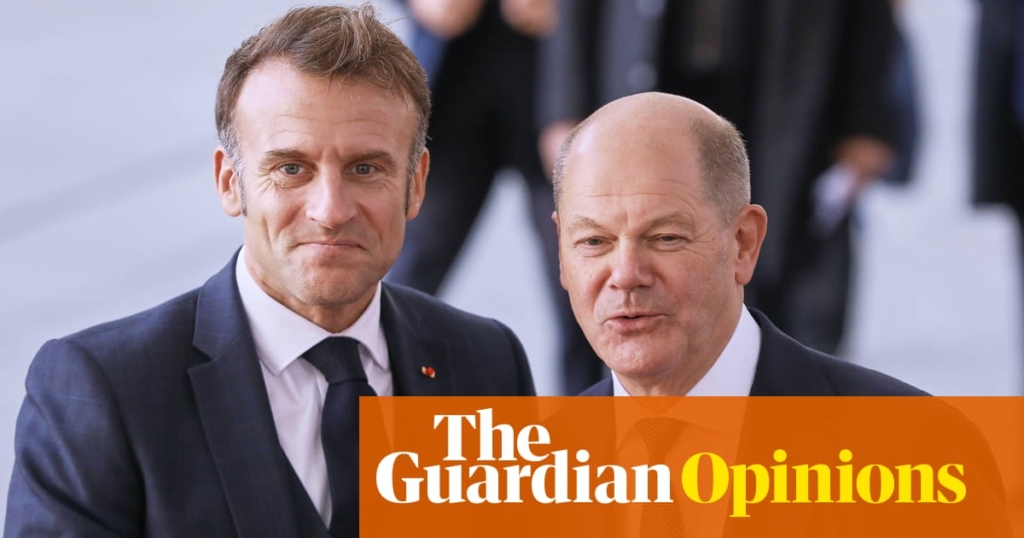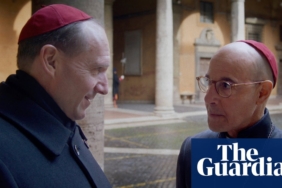Bu içerikte, Avrupa’daki siyasi gelişmeler hakkında bilgi verilmektedir. Almanya ve Fransa’da yaşanan hükümet krizleri ve seçimler ile ilgili detaylar paylaşılmaktadır. Avrupa’nın karşı karşıya kaldığı zor kararlar ve sorunlar da vurgulanmaktadır. Almanya’da Şansölye Olaf Scholz’un hükümeti, Maliye Bakanı Christian Lindner’ı kovması sonucu güven oylamasını kaybetmiş ve erken seçim kararı almıştır. Fransa’da ise Emmanuel Macron’un siyasi kararları ve hükümet değişiklikleri ele alınmaktadır. Avrupa’nın önemli iki ülkesinde yaşanan siyasi sorunlar, kıtadaki istikrarsızlığı artırmaktadır.
[ad 1]
Kaynak: www.theguardian.com
After a brief weekend hiatus, action has resumed in the real-life political boxsets playing out in the EU’s two most important capitals. In the Bundestag on Monday, a vote of no confidence in Chancellor Olaf Scholz’s battered coalition government duly paved the way for a snap election in February. Over in Paris – where the same manoeuvre collapsed Michel Barnier’s short-lived government a fortnight ago – his prime ministerial replacement was putting his feet under the desk after being appointed on Friday by an increasingly desperate Emmanuel Macron.
As Europe faces big decisions and dilemmas over Ukraine, how to deal with Donald Trump, and the challenge of China, this is no time for the continent’s fabled Franco-German engine to temporarily conk out. But there are no easy fixes in view on either side of the Rhine. In both France and Germany, the rise of the far right and a concomitant crisis of trust in mainstream politics have pointed to a deep political malaise for some time.
Mr Scholz effectively decided to put his troubled coalition government out of its misery in November by firing his fiscally hawkish finance minister, Christian Lindner. As Germany seeks to reboot an economic model that can no longer rely on cheap Russian energy and export-led growth, the SPD leader has deliberately forced an election to seek a mandate for greater borrowing and investment.
Unfortunately, he looks unlikely to get it. The most likely next chancellor is Friedrich Merz, the Christian Democratic Union (CDU) leader and a former BlackRock executive. Mr Merz has pledged to maintain the cordon sanitaire excluding the far‑right Alternative für Deutschland (AfD) from power. But the CDU’s plans to cut corporate taxes and rein in public expenditure would only deepen the social tensions that have fuelled the AfD’s rise.
France’s problems began in earnest with Mr Macron’s disastrous decision to call his own snap election last summer. Conceived as a means of confronting Marine Le Pen’s far-right party, which had won the European elections in June, the strategy succeeded only in delivering an ungovernable parliament divided into three blocs, none boasting a majority. Mr Macron then compounded his error by refusing to allow the election’s narrow winner, the leftwing New Popular Front coalition, to provide the next prime minister.
A damaging democratic fiasco has ensued. Mr Macron spectacularly lost his electoral gamble, but is stubbornly attempting to protect his unpopular pension reforms and push through an austerity budget to appease the markets and satisfy Brussels’ deficit criteria. With the rightwing Mr Barnier ousted in record time, he has now turned to François Bayrou, a veteran centrist from the rural south-west of France and longstanding ally. Mr Bayrou is the fourth prime minister to be recruited by the president this year, each lasting a shorter period of time than their predecessor. He has drily pronounced his task to be of “Himalayan” proportions.
Political dysfunction in the EU’s two most powerful member states feels like a somewhat ominous way to close the year. From January, Mr Trump will doubtless be seeking to browbeat western allies on matters of economic and foreign policy. Right now, with Paris and Berlin plunged into introspection, it would be fair to say that Europe does not look fully ready for the challenge.






Yorumlar kapalı.